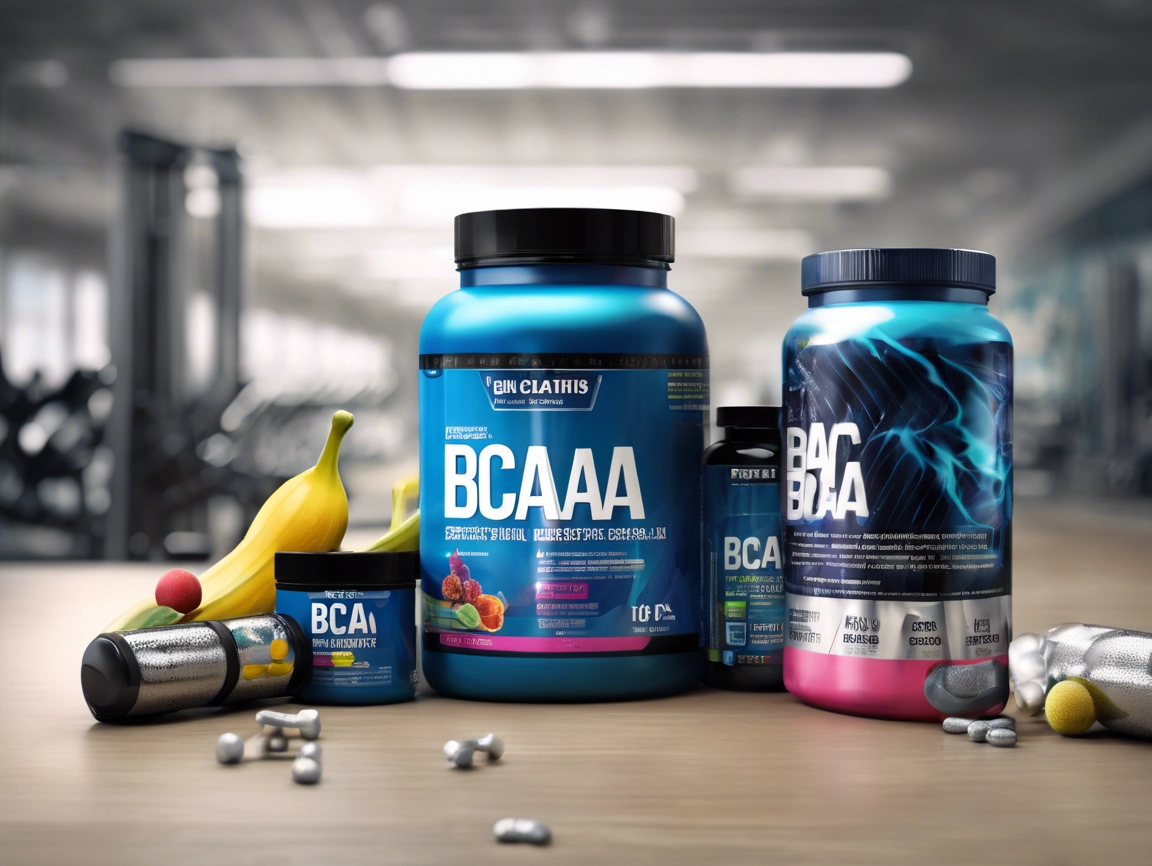Branched-Chain Amino Acids (BCAAs)
Branched-Chain Amino Acids (BCAAs) are a group of three essential amino acids: leucine, isoleucine, and valine. These amino acids are termed “branched-chain” due to their chemical structure, which features a branching chain of carbon atoms. BCAAs play a crucial role in protein synthesis, recovery, and overall muscle health, making them a popular choice among athletes, bodybuilders, and fitness enthusiasts looking to enhance their workout performance and recovery.
History of BCAAs
The introduction of BCAAs into sports nutrition can be traced back to the early 1970s when researchers began exploring the impact of amino acids on exercise performance. Early studies indicated that BCAAs could predictably influence muscle protein synthesis and reduce exercise-induced muscle damage. These findings catalyzed interest in BCAA supplements among athletes seeking to optimize their training and recovery.
In 1984, a pivotal study conducted by the renowned exercise physiologist Dr. Paul J. Arcidiacono demonstrated that BCAA supplementation could significantly reduce muscle soreness after intense exercise. This study, among others, played a crucial role in validating the use of BCAAs in athletic training regimens. Over the years, BCAA formulations have evolved, with manufacturers developing various products such as powders, capsules, and ready-to-drink beverages.
Understanding BCAAs: The Uniqueness
What sets BCAAs apart from other amino acids is their distinct ability to bypass the liver and enter the bloodstream directly, allowing for rapid availability to tissues during and after exercise. This unique metabolic pathway makes them especially useful for athletes and those engaging in high-intensity workouts.
Leucine, one of the three BCAAs, plays a pivotal role in stimulating the mTOR pathway, a critical regulator of protein synthesis in the body. This makes leucine arguably the most significant component of BCAAs for muscle growth. Isoleucine aids in glucose uptake and energy production during exercise, while valine is involved in muscle metabolism and tissue repair. By providing these essential amino acids in higher concentrations, BCAA supplements can help individuals achieve their fitness goals more effectively.
Benefits of BCAA Supplements
BCAA supplements come with a spectrum of potential benefits that attract athletes and fitness enthusiasts:
- Enhanced Muscle Growth: BCAAs, particularly leucine, have been linked to increased protein synthesis, promoting muscle hypertrophy (growth). Several studies have shown that BCAA supplementation can enhance muscle recovery and growth when paired with resistance training.
- Reduced Muscle Soreness: BCAAs have been found to mitigate delayed onset muscle soreness (DOMS), which is a common consequence of rigorous exercise. This reduction in soreness can enable individuals to train more frequently and with greater intensity.
- Improved Exercise Performance: Research indicates that BCAA supplementation may prevent exercise fatigue, allowing for prolonged performance. This is particularly beneficial for endurance athletes seeking to push their limits.
- Better Recovery: Post-exercise BCAA supplementation has shown promise in speeding up recovery times, aiding muscle repair, and reducing muscle breakdown. This can be especially crucial for athletes undergoing extensive training regimes.
- Support for Weight Loss: Some studies propose that BCAAs can assist in fat loss by promoting lean muscle retention during caloric deficits. This can be advantageous for individuals looking to shed body fat while maintaining muscle mass.
Potential Downsides of BCAAs
While BCAA supplements offer numerous benefits, it is essential to consider their potential downsides:
- Imbalances in Amino Acid Consumption: Sole reliance on BCAA supplements can lead to an imbalanced intake of amino acids, particularly if an individual neglects whole protein sources. It’s crucial to maintain a well-rounded diet that includes all essential amino acids.
- Possible Gastrointestinal Disturbances: Some users may experience gastrointestinal discomfort, including bloating or an upset stomach, particularly when consuming BCAAs in high doses or on an empty stomach.
- Limited Effectiveness for Sedentary Individuals: BCAAs primarily benefit active individuals or those engaged in regular exercise. For sedentary individuals, the potential benefits may be negligible, leading to unnecessary supplementation.
- Potential Interference with Other Amino Acids: Research indicates that excessive intake of BCAAs may interfere with other amino acid absorption, possibly leading to nutrient imbalances.
How to Incorporate BCAAs into Your Routine
Incorporating BCAA supplements into your fitness regimen can be done effectively by considering the following tips:
- Timing: Many experts recommend consuming BCAAs before, during, or after workouts for optimal results. Pre-workout consumption can help fuel the workout, while post-workout intake can aid in recovery.
- Choose Quality Products: Not all BCAA supplements are created equal. Look for reputable brands that provide transparent ingredient lists and emphasize quality assurance. Products with at least a 2:1:1 ratio of leucine to isoleucine and valine are generally considered effective.
- Mix with Other Nutrients: For enhanced performance and recovery, consider combining BCAAs with other nutrients such as carbohydrates or protein. This synergy can optimize replenishment and recovery.
BCAA Products: What to Look For
When selecting BCAA supplements, certain features can enhance their value:
- Ingredient Transparency: A reliable supplement should provide detailed ingredient information, ensuring no hidden additives or fillers.
- Sourcing of Amino Acids: Pay attention to whether the amino acids are derived from fermented sources or synthetic sources, as this can affect overall quality.
- Multiple Flavors: BCAAs come in various flavors, making it easier to incorporate them into your routine.
- Additional Nutrients: Some BCAA products are combined with other beneficial ingredients, such as electrolytes or vitamins, which can further support exercise performance and recovery.
Who Can Benefit from BCAA Supplements?
BCAAs can be advantageous for numerous individuals, including:
- Athletes and Bodybuilders: For those engaged in intense training, BCAAs can be instrumental in enhancing performance, recovery, and muscle growth.
- Endurance Athletes: Those participating in long-duration activities can benefit from improved endurance, reduced fatigue, and quicker recovery times.
- Fitness Enthusiasts: Individuals looking to lose weight, preserve muscle mass, or build lean muscle may find value in BCAA supplementation.
- Older Adults: Aging individuals may experience muscle loss over time; incorporating BCAAs into their diet can help combat this issue by promoting muscle retention.
Conclusion
Branched-Chain Amino Acids (BCAAs) have become a staple in the wellness and fitness arenas, known for their potential to enhance muscle growth, reduce soreness, and improve recovery times. Although they are not a replacement for whole food protein sources, they can complement a balanced diet and benefit those who are regularly engaged in exercise. As with any supplement, it’s important to approach BCAA supplementation strategically, considering individual fitness goals, dietary habits, and overall health.
Investing time into selecting quality BCAA products can yield significant returns in your fitness journey, helping push you closer to your personal goals. Always consult with a healthcare provider or a nutritionist to determine if BCAA supplementation is the right choice for your unique lifestyle and needs.
For further reading, you can explore various studies and sources related to BCAAs:

